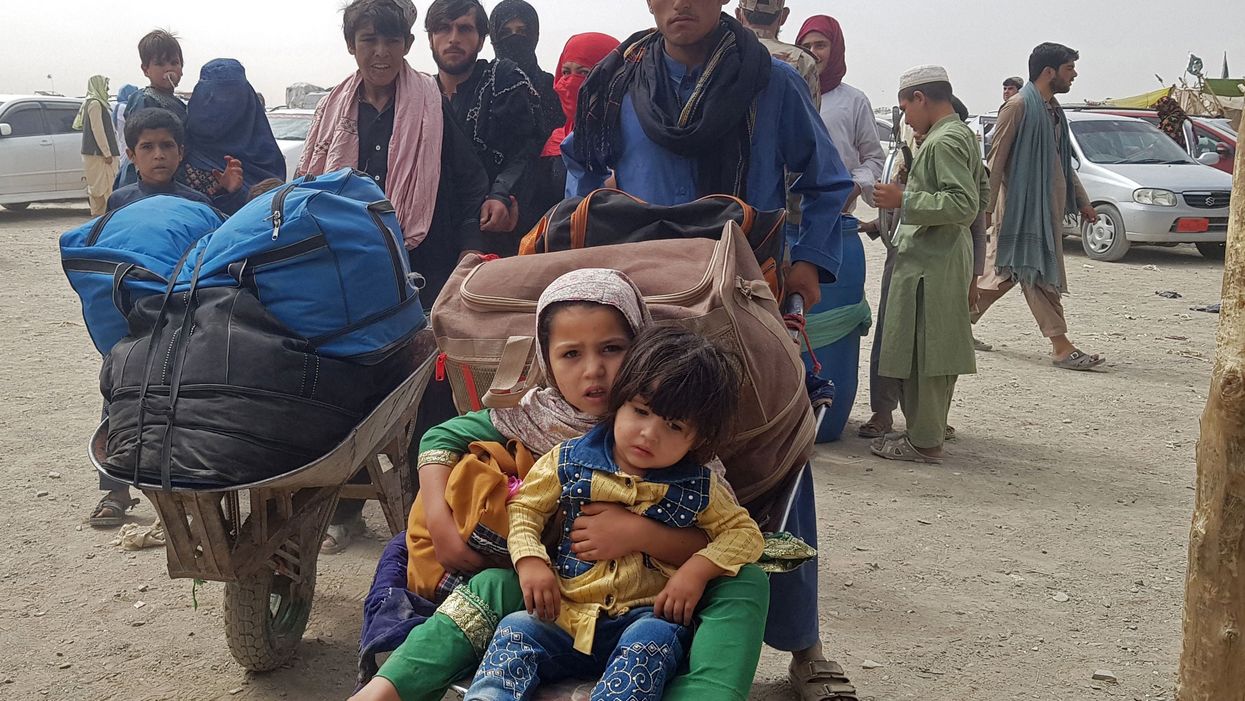The scenes in Afghanistan this month, as the Taliban regained control of the country following the collapse of the Western-backed government, will have shocked many.
Now, with masses of people attempting to evacuate the country from Kabul airport before foreign forces leave Afghanistan on the 31 August deadline, the situation is increasingly dangerous.
As people desperately try to flee, the crowds gathered at the airport have resulted in fatal crushes that have left children orphaned.
Yesterday, two deadly suicide bombings committed by Isis-K – an affiliate group of Islamic State – killed dozens of people, including children, who were trying to flee the country from Kabul airport.
Despite most of us being thousands of miles away, there are a few small things you can do to support those directly affected by what is happening.
Firstly, there are refugee charities that are accepting donations to help Afghans that are attempting to flee the country.
A Twitter thread created by @KateOfHysteria has listed many of the causes that you can give to right now.
Former Tory MP Rory Stewart has also shared a link to a Crowdfunder campaign organised by the Turquoise Mountain Trust that is hoping to aim £100,000 for the Afghan people.
Other trusted charities and humanitarian organisations that you can donate to include:
- HIAS
- Care
- Oxfam
- Unicef
Beyond charities, there are numerous things you can do to make sure that the right people are aware that you want to help the Afghan people in their time of need. A viral thread by Bushra Abadi, which has been shared more than 15,000 times on Twitter alone, details many of the different ways you can help support Afghanistan.
Here are a few of her key points.
Amplify experts and activists voices. Not your own
Few of us are actually experts in Afghanistan or Middle Eastern politics. Share the voices and knowledge of the people who know what they are talking about rather than your own.
Reach out to your local political figure
Get in touch with your local member of parliament or elected official to see what they are doing to help the Afghan people. This can involve protesting against deportations back to Afghanistan and helping those to resettle people in need.
Campaign for mental health support for refugees and asylum seekers
PTSD and trauma is often overlooked and neglected when resettling refugees.
Speak out against ethnic cleansing
Many marginalised religious groups in Afghanistan will now likely be targetted by the Taliban. Protection of heritage sites is also of the upmost importance.
Back calls to keep borders open to Afghan refugees
Also, support the work that the UN and other humanitarian organisations are doing in Afghanistan.
Elsewhere Sahdya Darr an Immigration Policy Manager for Open Rights Group and Educational Mentor for Refugee Education UK has also been highlighting other ways you can help Afghan people.
Donating your airline miles
If you have airline miles you can donate them to those who are legal approved to travel and mitigate the fees for the flights.
Rukshana Media and Sahar Speaks
If you want to support female Afghan reporters and journalism then check out Rukshana Media and Sahar Speaks.
Ehtesab App
Ehtesab App helps keep people in Kabul safe and up to date with security updates.
Around 5 million people live in Kabul, with at least 60 Afghans and 13 US service members reportedly killed in blasts at the airport. The Taliban are being urged by many nations to let those fleeing leave the country peacefully, warning of human rights abuse accountability.
Top 100
The Conversation (0)














